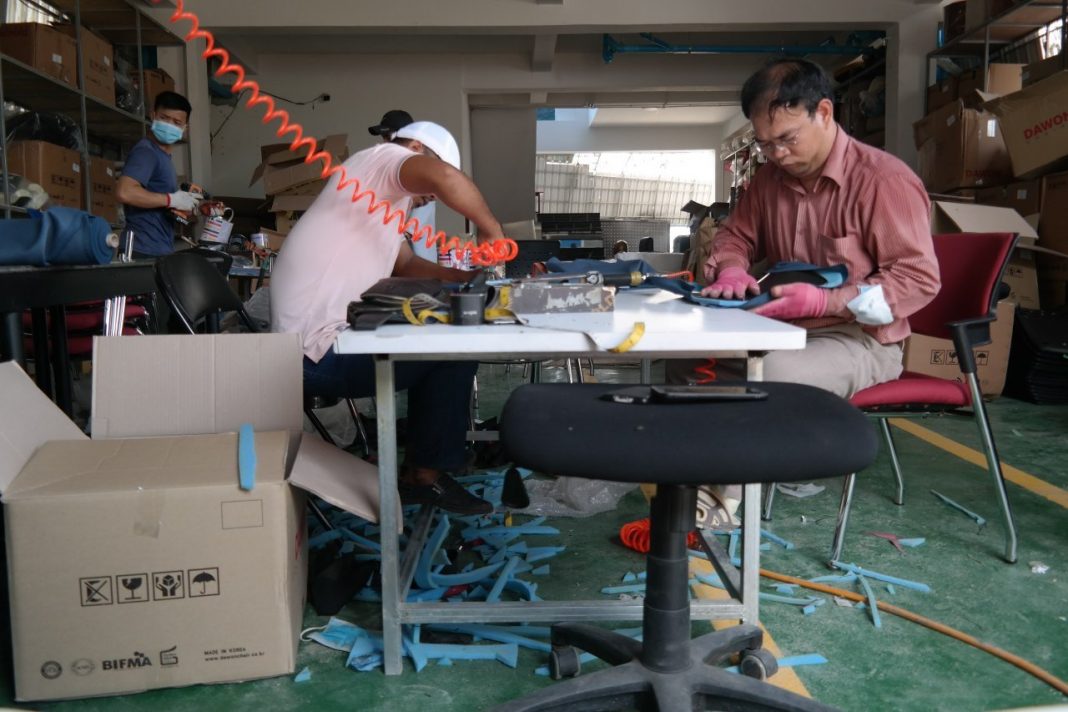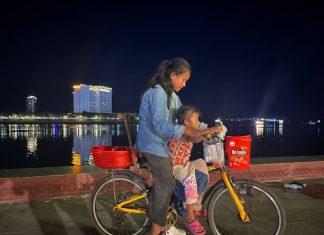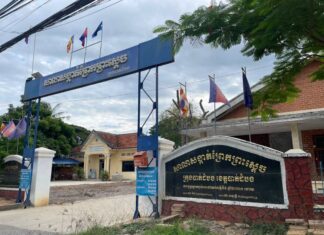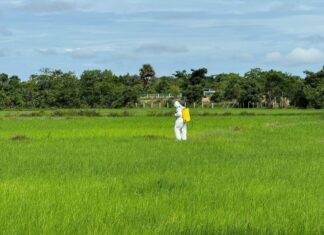Lat Sophal has seen his life transformed: six years ago, he was a migrant laborer in South Korea making office chairs in factories. Today, he partners with some of those same South Korean conglomerates to import and assemble the chairs here.
Sophal, 33, said it was a dream come true, especially compared to some of the harsh conditions he had dealt with as a migrant laborer.
Born in the countryside of Kandal province, Sophal emigrated to South Korea in 2011 to earn money and pursue his dreams. He stayed until 2014, coping with some difficult times with the hope of bettering himself.
“Three years of living and laboring in a second country such as Korea is not an easy life — I felt homesick, exhausted and lonely sometimes,” he said.
“However, I was not just there to work and earn money. I used my spare time to study, build my language capabilities, and search for any opportunity for my career when I got back to Cambodia, especially to find office chair factories and suppliers to partner with.”
He returned to Cambodia with a strong vision: He wanted to use the skills and expertise he gained in South Korea to establish his own business importing and assembling modern office chairs in Cambodia. He had noticed that there were no office chair factories or manufacturers in Cambodia, just one or two dealers importing a limited range of office chairs from South Korea.
He said many people here had bad experiences from using poor-quality chairs, and had become “victims” of their own chairs. They would suffer from neck and back pain, and even injuries due to technical defects such as casters breaking apart, he said.
Despite the gap in the market, however, it still took several years of persistence to get his business off the ground.
“I contacted a few office chair manufacturers in Korea immediately after my repatriation, but they were not interested,” he said. Instead, for four years, Sophal helped his brother run a motorcycle repair shop.
“But I didn’t give up on my dream even though it was slow,” he said. “To me, the important thing was that I had to build up myself to be strong first.”
Last year, Sophal was finally able to establish MEC, his Cambodian office chair company. He tapped his contacts in South Korea and Cambodia and was able to establish partnerships with some Korean conglomerates.
“Now, several Korean investors and companies that I never knew before have been calling me for a partnership,” he said.
“I am very happy that I could make my dream — the office-chair business — come true,” Sophal said, recalling some of the struggles he had gone through to make it happen. “In Korea, I worked so hard,” he said, explaining that 12-hour workdays were the norm, and some days could stretch to 15 hours.
“It was badly cold. Some days, the weather was minus 15 degrees Celsius and my nose was bleeding sometimes. I felt uncomfortable and my body was frequently in pain.”
According to Yeo Dong Su, a representative of recruitment agency Human Resources Development Service of Korea’s EPS Center in Cambodia, 76,336 Cambodian laborers have been sent to South Korea through May under the country’s employment permit system.
Though the company’s main work is sending workers to South Korea, rather than supporting them after returning, it has also helped returnees to form networks in Cambodia to encourage employment and entrepreneurship, Yeo said.
“We are helping to create a network among returning workers,” he said. “We have been holding events inviting many returning workers [in order to encourage] successful re-employment and startups as well as networking between them [so they can] help each other.”
On average, Cambodian workers in South Korea earn $1,200 to $1,300 per month in the agricultural sector and about $1,700 to $1,800 in the industrial sector, according to the VOA News. They annually send an estimated $300 million in remittances to their families.












